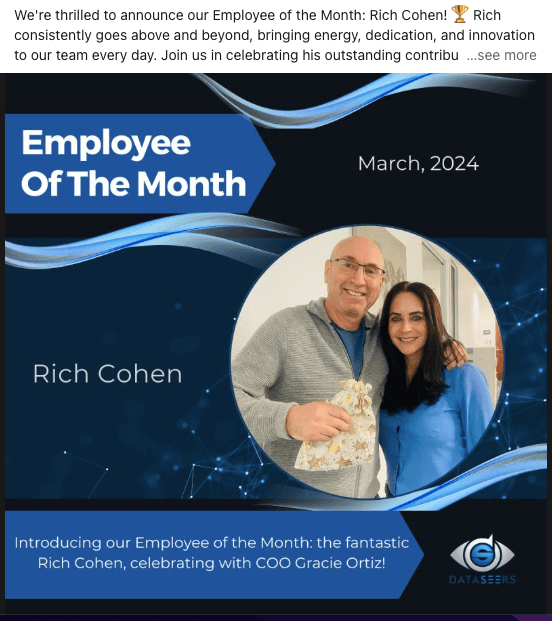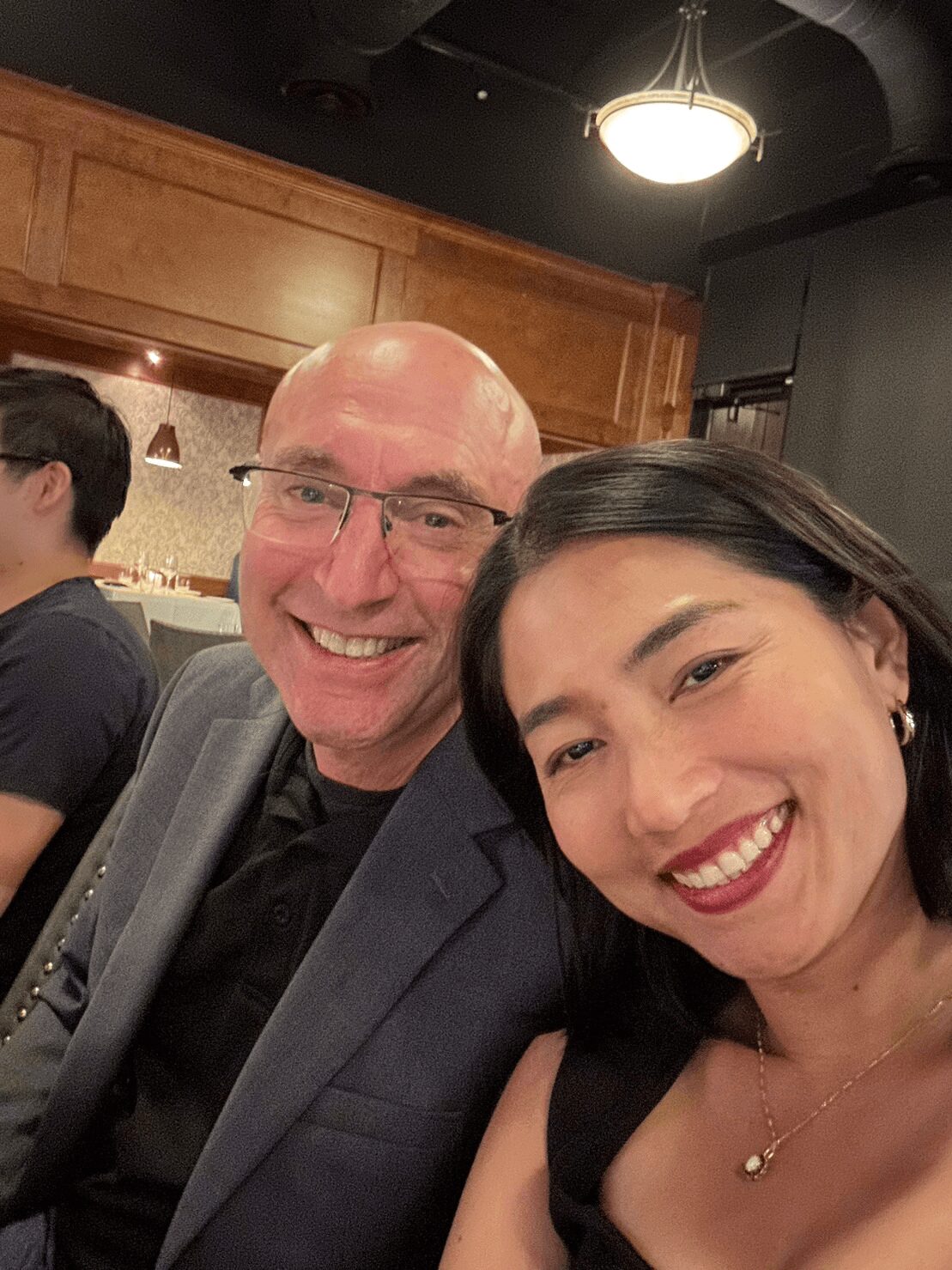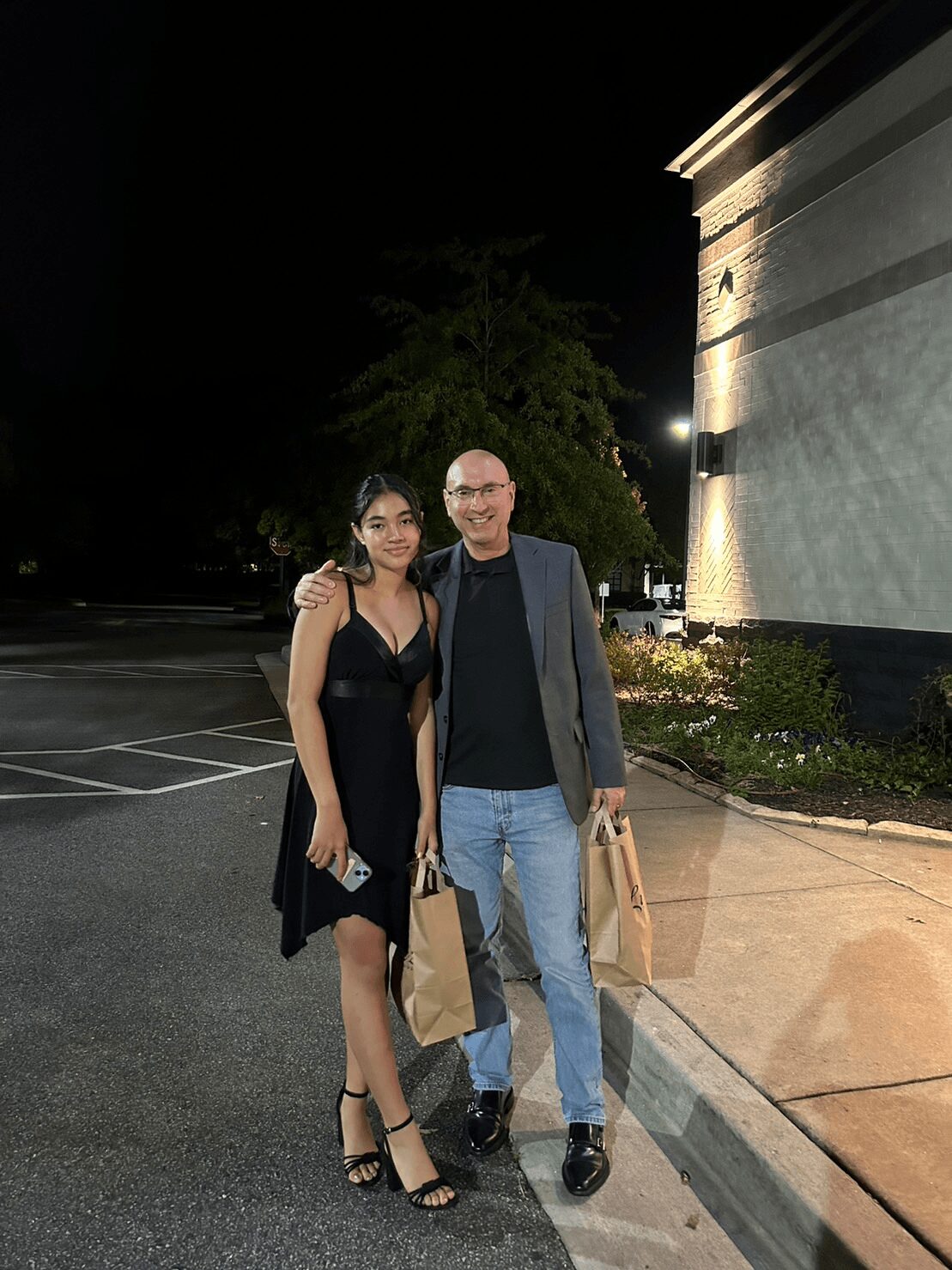We caught up with the brilliant and insightful Richard Cohen a few weeks ago and have shared our conversation below.
Richard, appreciate you joining us today. It’s always helpful to hear about times when someone’s had to take a risk – how did they think through the decision, why did they take the risk, and what ended up happening. We’d love to hear about a risk you’ve taken.
My dream was to work for a top investment bank. I recognized that I couldn’t attain that type of position without an advanced degree, but my grades weren’t strong enough for me to be accepted into a top MBA program, which is the usual prerequisite for joining one of these firms. Thus began a series of risks I took in order to realize this dream.
My first risk was to quit a good job as a fund manager. My second risk was to attend a brand new school at UCSD called The Graduate School of International Relations and Pacific Studies even though the school was in its very first year. In addition to taking the risk with this completely unproven school with no reputation or alumni, etc. I also chose to study the Japanese language, even though I am not particularly good with languages. A strong command of Japanese was a requirement for graduation.
Eventually, I excelled at the school, winning scholarships, and attaining a job at a very highly ranked investment bank as an institutional equities salesperson, my top choice of a career. However, the really big risk I took was to leave my great job in California and move to Singapore, a country where I knew zero people and a stock market that I didn’t know at all.
This huge risk ended up being the best decision I ever made, as I built an incredible career in Singapore, then Malaysia, and finally in Thailand. Not only did I love my work and my life, but I found the perfect wife in Thailand and we currently have a daughter that I couldn’t be happier with.

Awesome – so before we get into the rest of our questions, can you briefly introduce yourself to our readers.
I have always enjoyed people. From a very young age I gravitated toward sales. I learned very early on that if I became an expert in my field, I could provide my customers with great value. I loved doing this. The first time I experienced this was when I worked in my local athletic shoe store at age 16. Instead of just selling the shoes people asked for, I dove in and became a real expert. This was back in the late 1970’s when running shoes in particular were in their infancy and the right pair of shoes could mean great running enjoyment, while the wrong ones could lead to lifelong injury. I developed such a reputation for selling shoes that people came from dozens of miles away to have me help them choose their next pair of Nikes, New Balances, Adidas, etc.
I took this attitude to the world of stock brokerage when I was in my twenties. I realized that I could make a very good living by parroting my company’s top Buy and Sell recommendations to our clients. However, I wanted to offer much more than being a mouthpiece for our analysts. With this in mind, I took the opportunity to move to Singapore and to cover American clients from Singapore. I wanted to provide them with insights that could only be given by someone in-country.
While this strategy worked to a certain extent and I made more money than I ever had before, the truth is that Singapore is a very transparent country and there just isn’t that much extra that a local can provide versus someone in New York or London. Thus, I made the decision to not only leave the comfort of the famous firm I worked for, Baring Securities, but I decided to move to a local broker in Kuala Lumpur Malaysia called Rashid Hussain Securities – a pretty funny place for a Jewish kid from California to choose!
In Malaysia I made it my business to not just learn about the institutional-grade shares most institutional investors trade, but to get to know the smaller companies, unknown to global institutions. I met the CEOs and Chairmen of these companies. Traveled the country to factories churning out everything from rubber gloves to aluminum cans. My career in Malaysia spanned more than ten years and I was recognized by “Asiamoney” magazine as the top salesperson in all of Malaysia to hedge funds. This was when I was working for a Malaysian broker called CIMB, which only had one office in the world, while my competitors at Credit Suisse, Morgan Stanley, Merrill Lynch, etc. had offices in just about every financial center in the world.
I experienced similar successes in Thailand where I established an entire institutional team for a local broker. However, I spent much of my time in Thailand in semi-retirement, enjoying the good life on various beaches with my wife and daughter. It was only after returning to America three years ago that I regained my sense of urgency and excitement in the world of sales.
I now work for a financial technology software company called DataSeers. We are the smallest company in the top-tier Software-as-a-Service field catering to a particular niche for banks. Our software helps them to be compliant with local laws and to effectively battle financial crimes such as money laundering, fraud, human trafficking, terrorist financing, etc. Although my firm is smaller than all our other competitors, we are actually taking market share from them, growing faster, and showing that big marketing dollars can’t beat a great product and a team of dedicated people. It reminds me of my days at Rashid Hussain and CIMB.

Can you tell us about a time you’ve had to pivot?
Although I had a wonderful career as an institutional stockbroker, I grabbed the opportunity to join a hedge fund when the local broker I worked for (CIMB) began to expand internationally. I loved working for the hedge fund, as we bought shares of small, illiquid companies and traded them aggressively. Eventually, we had the reputation as the best stock pickers and best traders in the Malaysian market. Unfortunately, the regulators felt differently than the market as a whole. They felt we were manipulating the shares of the stocks and they used their clout to put us out of business. At that point in time, I had to make a pivot in both my personal and business lives.
Rather than running home to America, I moved to Thailand where I shifted into low gear and did a big reset. I exited an unhappy marriage, left the world of publicly listed securities, and eventually found my way into fintech. This pivot allowed me to find my soul mate and to build a new life in Thailand. In addition, it allowed my family and I to relocate to the US where my Thai wife is enjoying the life of an expatriate, my daughter is thriving in high school, and I am leading sales and marketing (and investor relations) for a dynamic fintech software provider.

How’d you build such a strong reputation within your market?
Although it is a requirement to know your industry and to put in long hours, the one thing that has led to my success both in software sales and in investment sales has been straight, honest talk. When I would promote high risk/high return stocks to my clients, I would often say something like, “This stock has been rising 10% a day for a week and I think it will continue to do this for the next few weeks, however, unlike an established, blue-chip stock, if things go the wrong way, the stock that went up like an escalator could go down like an elevator, sadly, an express elevator, and you could lose fifty, sixty, or even one hundred percent of your investment.” This honesty paid me dividends in that when things went as hoped, the clients loved me, but when the stocks went against us, they would typically appreciate that I explained the risks before they put their money on the line.
This is the case with software as well. Software is always being upgraded with new versions. Software, of the type I sell, takes months to be integrated into a bank’s systems. Buyers are always looking for the most possible features in a software solution. In order to close sales there are many salespeople who over-promise. They exaggerate how quickly new features will be incorporated into the package they own. They indicate that implementation of the new solution can be done in sixty days, when in reality it’s probably closer to ninety or one hundred days. And sometimes, they even exaggerate the features the software currently utilizes. This is a path to failure, as one would imagine. My attitude has always been to surprise the client with more features than I promised and a shorter implementation time.
Contact Info:
- Website: https://www.dataseers.ai/
- Linkedin: https://www.linkedin.com/in/richiecohen/






